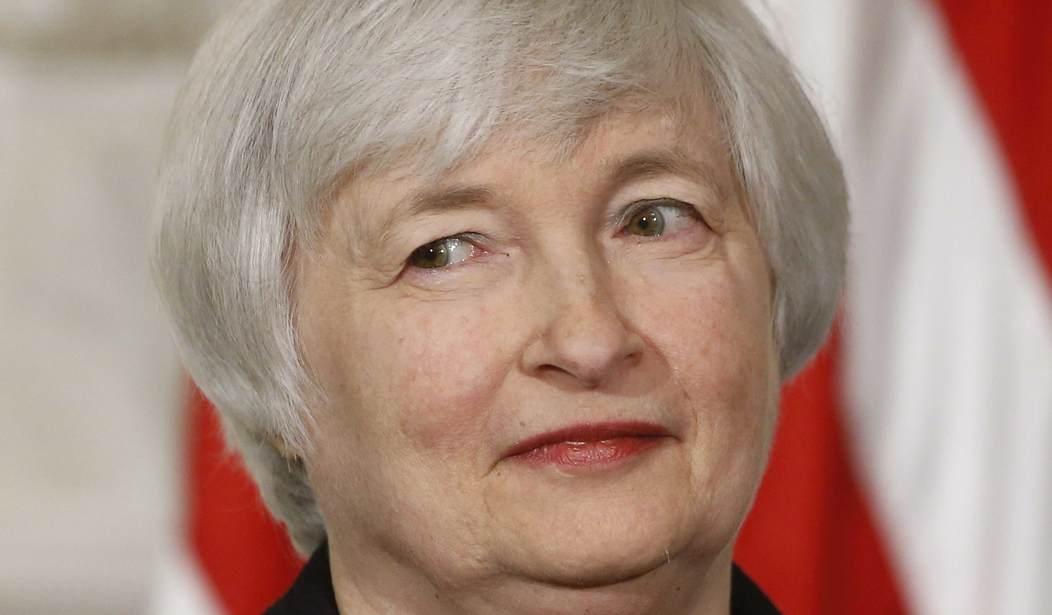WASHINGTON – Federal Reserve Chair Janet Yellen said Tuesday that the central bank will continue reducing its monthly bond-buying program at a steady pace, following the course established by her predecessor.
Yellen spoke about the economic recovery, monetary policy, and the financial system before the House Financial Services Committee in her first appearance on Capitol Hill since being sworn in last week.
Yellen said recent volatility in global financial markets did “not pose a substantial risk to the U.S. economic outlook.”
“We will, of course, continue to monitor the situation,” she said.
Yellen promised some continuity with the strategy laid out by Ben Bernanke, her predecessor. She reiterated that the Fed was on track to keep reducing the amount of money the central bank is pumping into the economy.
“I expect a great deal of continuity in the Federal Open Market Committee’s (FOMC) approach to monetary policy,” Yellen told the committee.
The Fed has been buying longer-term Treasury securities and mortgage-backed securities to push down long-term interest rates, as an attempt to stimulate spending in the economy and spur economic growth.
Yellen said that the economy gained traction in the second half of last year, pointing to real GDP growth, which rose at an annual rate of more than 3.5 percent in the second half, compared to 1.75 percent in the first. She also said there has been progress in the labor market which has added 3.25 million jobs since the Fed began a new round of asset purchases in August 2012.
Nevertheless, she noted, the recovery in the labor market is far from complete.
“The unemployment rate is still well above levels that FOMC participants estimate is consistent with maximum sustainable employment,” Yellen said.
The economy added just 113,000 jobs last month and 75,000 jobs in December.
The FOMC, the Fed’s policy-setting body, will meet in March. Yellen said only a “notable” change in outlook would cause the committee to pause the current course and only a “deterioration” in outlook would cause it to increase the amount purchased.
Those out of a job for more than six months continue to make up a large portion of the unemployed and the number of people working part-time who would like a full-time job remains very high, she said.
Yellen also said the Fed’s short-term interest rates are likely to remain at the current level of near zero well after the end of the bond-purchasing program.
Several lawmakers challenged Yellen’s opposition to legislation that would subject the Fed to an audit.
Rep. Michele Bachmann (R-Minn.) said the Fed was wrong to oppose the audit legislation championed by former Rep. Ron Paul.
“The American people are feeling less and less empowered to be able to hold the Federal Reserve responsible and accountable because they’re seeing the Federal Reserve’s balance sheet escalate to a level never before seen in American history,” Bachmann said.
Yellen noted that the Government Accountability Office already audits the central bank and its books are independently reviewed.
“The Federal Reserve should be audited,” Yellen said. “It should be open. It should be transparent.” But she added that she strongly objected to anything that would interfere with the independence of monetary policy by injecting political pressure into the central bank’s decisions.
Yellen noted that Congress has exempted the Fed’s monetary policy decisions from audits, and she would oppose any efforts to change that.
“Congress wisely made the Fed independent in the implementation of policy because it was understood that we sometimes have to make difficult decisions that would be hard for Congress to make in the best long-run interests of the country,” Yellen said.
Rep. Jeb Hensarling (R-Texas), the committee’s chairman, challenged the Fed’s departure from a decades-old monetary policy rule that Yellen once referred to as the mark of a “sensible” central bank.
“So that begs the question today, using your words, are you a sensible central banker, and if not, when will you become one?” asked Hensarling.
Yellen explained that in response to the financial crisis the rule would have prescribed the central back to push interest rates to below zero, which is impossible.
Some Republicans expressed concern that the Fed’s extraordinary support of the economy could eventually stoke inflation or destabilize financial markets.
Hensarling, a critic of the Fed’s asset purchases, questioned whether the Fed’s policies were creating more uncertainty and distorting financial markets.
The committee also heard testimony from several prominent economists. Hensarling added the second panel – composed of economic experts largely critical of the Fed’s recent policies – to comment on Yellen’s testimony.
John B. Taylor, a professor at Stanford University and the creator of a rule for guiding monetary policy, said discretionary economic and spending policies are to blame for the “disappointing” U.S. recovery.
“Monetary policy, regulatory policy, and fiscal policy each became more discretionary, more interventionist, and less predictable starting in the years leading up to the financial crisis and have largely remained in that mode,” Taylor said in his written testimony.
He said monetary policy would have been “far better” in the last few years had it been based on a predictable set of policy rules.









Join the conversation as a VIP Member